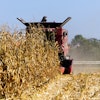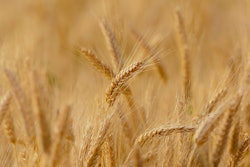
The president of the Philippines, Rodrigo Duterte, officially approved a cut to the country's corn import tariff on non-ASEAN corn from 35% to 5%.
Executive Order 171 cited the economics of the current world situation driven by the conflict between Russia and Ukraine and corn’s pivotal role in more than 50% of the total production cost of large-scale broiler and swine rations for the decision to lower import tariffs on corn.
U.S. Grains Council President and CEO Ryan LeGrand believes this is a responsible step by the Philippine government as it encounters domestic inflationary pressures.
“The U.S. and Philippines agricultural industries have enjoyed a strong relationship for a very long time,” said LeGrand. “USGC is standing by, ready to help the Philippine government and industry fill in any raw material supply shortage the country is facing.
"U.S. farmers have an abundant, sustainable corn crop ready to deploy when needed.”
Philippine feed industry relies on imports
The Philippines feed industry relies heavily on feed wheat imports due to its history of high import tariffs on corn outside ASEAN.
The recent global wheat supply chain disruptions have had a disproportionally negative impact on Philippine input prices.
“If these tariff reductions stick long term, the Philippine livestock industry will have a chance to become competitive again with their ASEAN neighbors," said Caleb Wurth, USGC regional director for Southeast Asia and Oceania.
"When a steady supply of corn is available, the overall demand for corn grows, given corn is still the energy source of choice by many nutritionists."
This higher demand for corn will also help local corn producers join the global corn market, increasing efficiency and profitability, said Wurth.
"USGC will be right there with our partners to ensure all parties in the agricultural supply chain equitably participate in this historic move.”
Philippine pork producers slam executive order
The Pork Producers Federation of the Phils. Inc. said the government's decision to extend the lower tariffs on pork imports until the end of the year will not bring the prices of meat down, and may even push back the recovery of the country’s hog industry from African swine fever (ASF).
“The whole swine industry is saddened by the issuance of the new Executive Order (EO 171) by President Duterte extending low tariffs for pork imports," Pork Producers president Rolando Tambago told The STAR.
"This will push back recovery efforts of the hog industry as it will definitely affect the sector’s confidence to reinvest for increased production output."
Philippine corn sector supports decision
Philippine Maize Federation (PhilMaize) president Roger Navarro expressed hope that the reduced tariffs for corn imports would be temporary, and that the tariff collections generated would be allocated for the development of the corn sector.
“In this regard we respect the decision of the president" Navarro told The STAR. "we earnestly hope that the necessary investments for corn post-harvest facilities and storage that our corn sector so badly needs for the longest time, will be realized and be put in place in the strategic corn farming areas in the country."


















